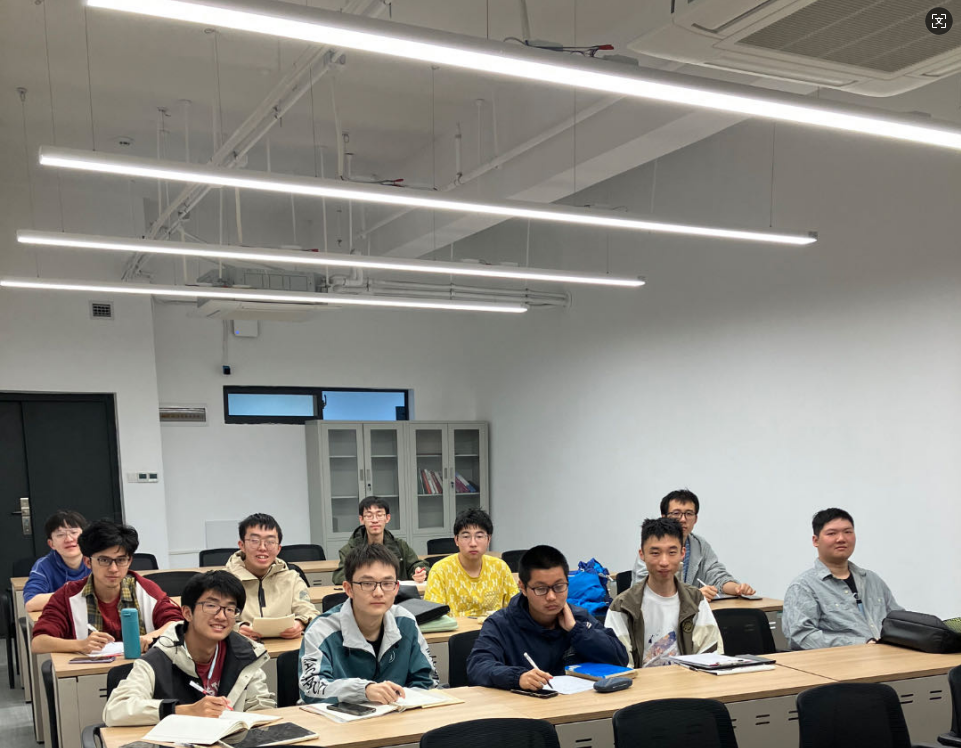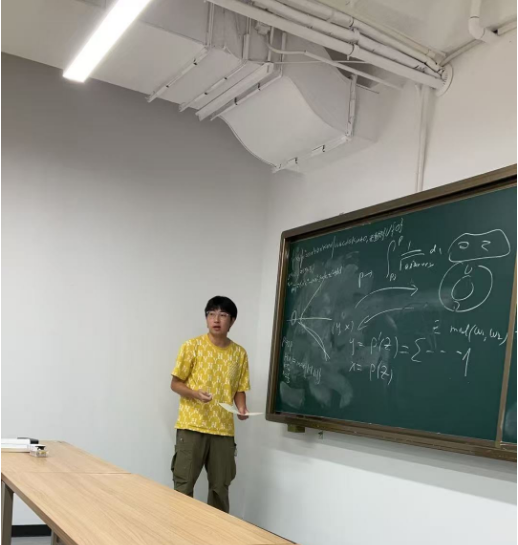As a student fortunate enough to participate in the undergraduate seminar led by Professor Fan Houhong from the School of Mathematical Sciences at Peking University, I would like to share with all fellow math enthusiasts our experiences, insights, and reflections from the series “Tracing the Classics, Exploring the Modern: From Classical Mathematics to Modern Mathematics.” Every Sunday evening this semester, an academic journey bridging classical and modern mathematics quietly unfolds in Room 419 of Lei Jun Hall.
The seminar is open to fifteen students from the 2022 and 2023 cohorts of the Self-Strengthening Class, the Strong Foundation Program, the Mathematics Hongyi Program, and the Mathematics and Applied Mathematics Program. Unlike traditional lecture-based teaching, the seminar adopts a more flexible and self-directed approach: Professor Fan recommends topics, but students may also choose their own. Through independent reading and writing study notes, we are encouraged to delve deeply into areas of mathematics that interest us. Starting from the third week and running through the sixteenth, each session is led by one student, while Professor Fan, with his unique teaching philosophy, guides us to explore the vast world of modern mathematics from the roots of the classical tradition.

Professor Fan is rigorous in scholarship. His rule — “you can’t leave without asking questions” — constantly urges us to think actively and question courageously. More importantly, he emphasizes that in learning mathematics one must “grasp the key point” (what’s the point) and develop a global geometric perspective. This has proven immensely helpful for us, especially as we begin studying topology, Riemannian geometry, and related subjects. Mathematical analysis focuses on meticulous details, whereas geometry requires an understanding of the broader structure to achieve deeper comprehension. Professor Fan also promotes a spirit of critique and self-critique, believing that without criticism there can be no progress. He reminds us to solidify our foundations in algebra and geometry so that we may advance steadily along the academic path. In addition, he often introduces us to cutting-edge developments in mathematical research, greatly expanding our scholarly horizons.

So far, we have held several discussions, each one immensely rewarding. Participating in Professor Fan’s seminar has not only deepened my understanding of mathematics but has also allowed me to experience the true charm and joy of mathematical research. Professor Fan holds that the student presentations and the ensuing questions from the audience vividly demonstrate each participant’s mathematical literacy — including their knowledge, skills, modes of thinking (in shape, number, logic, and physics), mathematical values, and implicit mathematical understanding (especially intuition for mathematical beauty and depth). Through this process, he gains a thorough understanding of each student’s academic personality and can provide specific, effective guidance for their development, truly practicing the principle of “teaching in accordance with individual aptitude.” From classical to modern mathematics, we have not only acquired knowledge but, more importantly, have cultivated independent thinking and broadened our academic perspective, laying a solid foundation for our future scholarly pursuits. I hope that more students will join similar seminars to explore the mysteries of mathematics and experience its enduring allure.